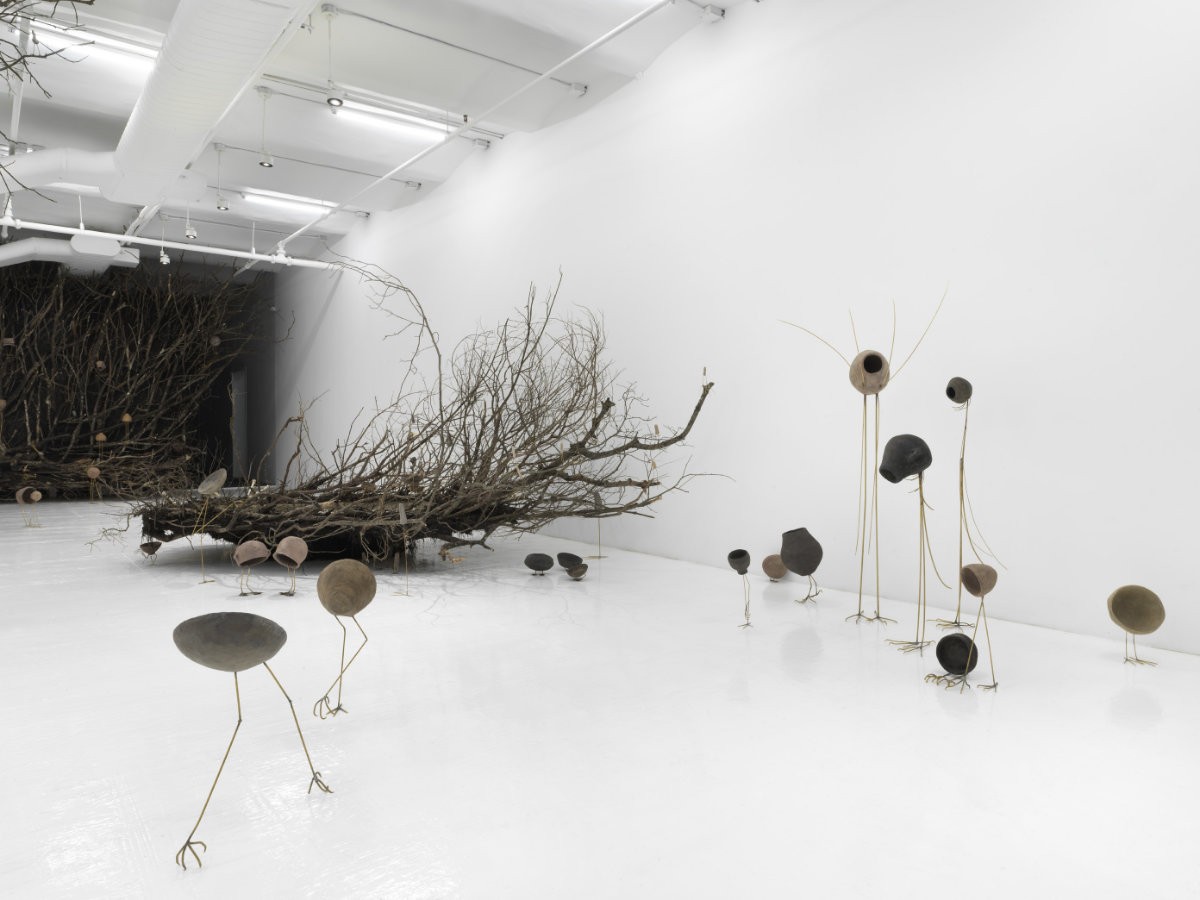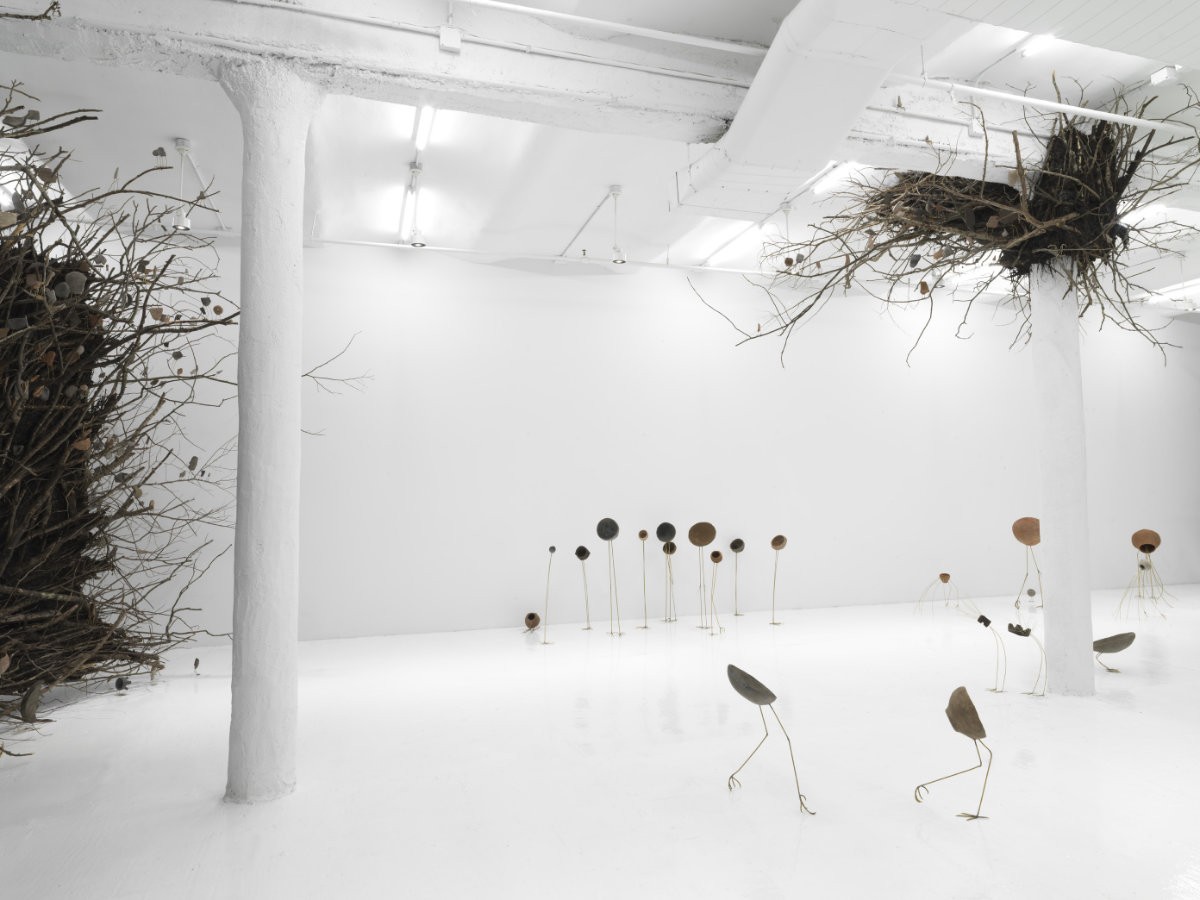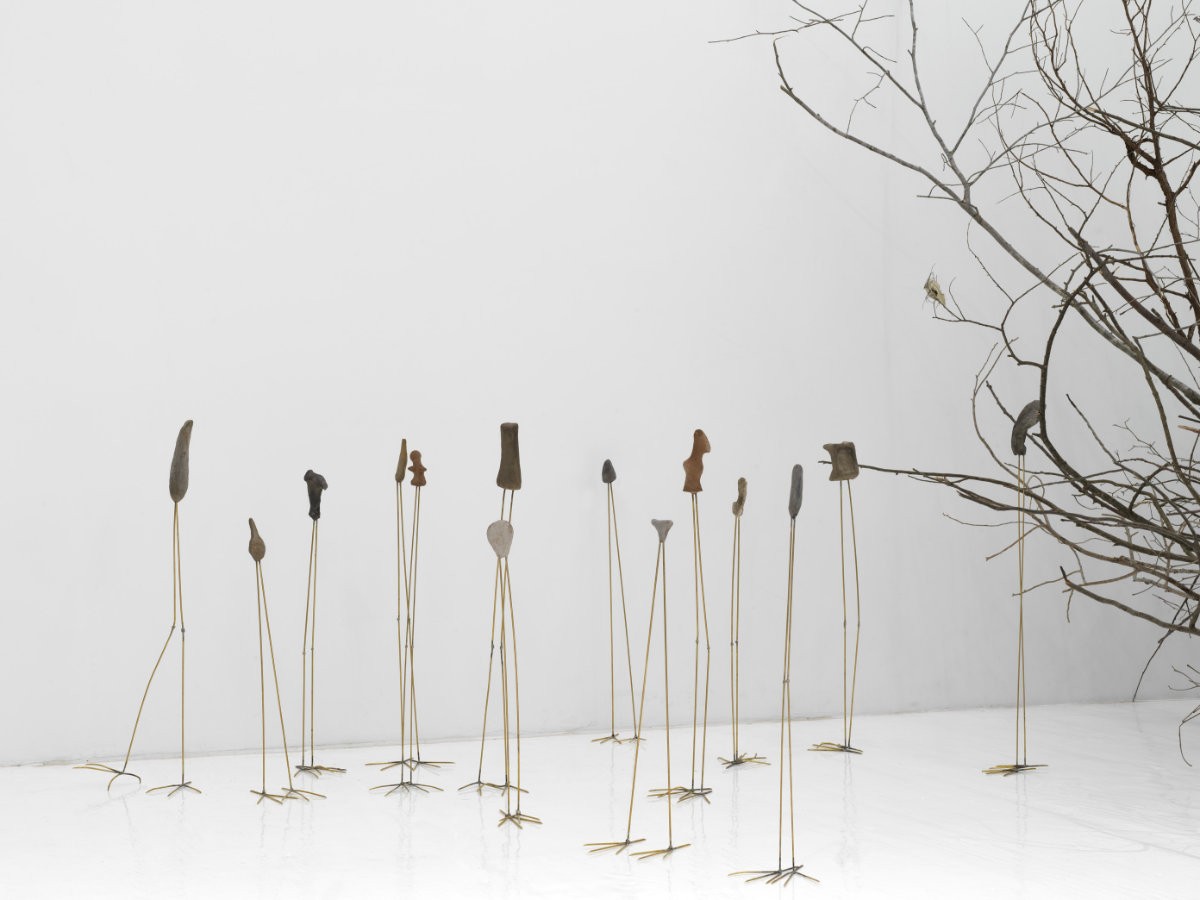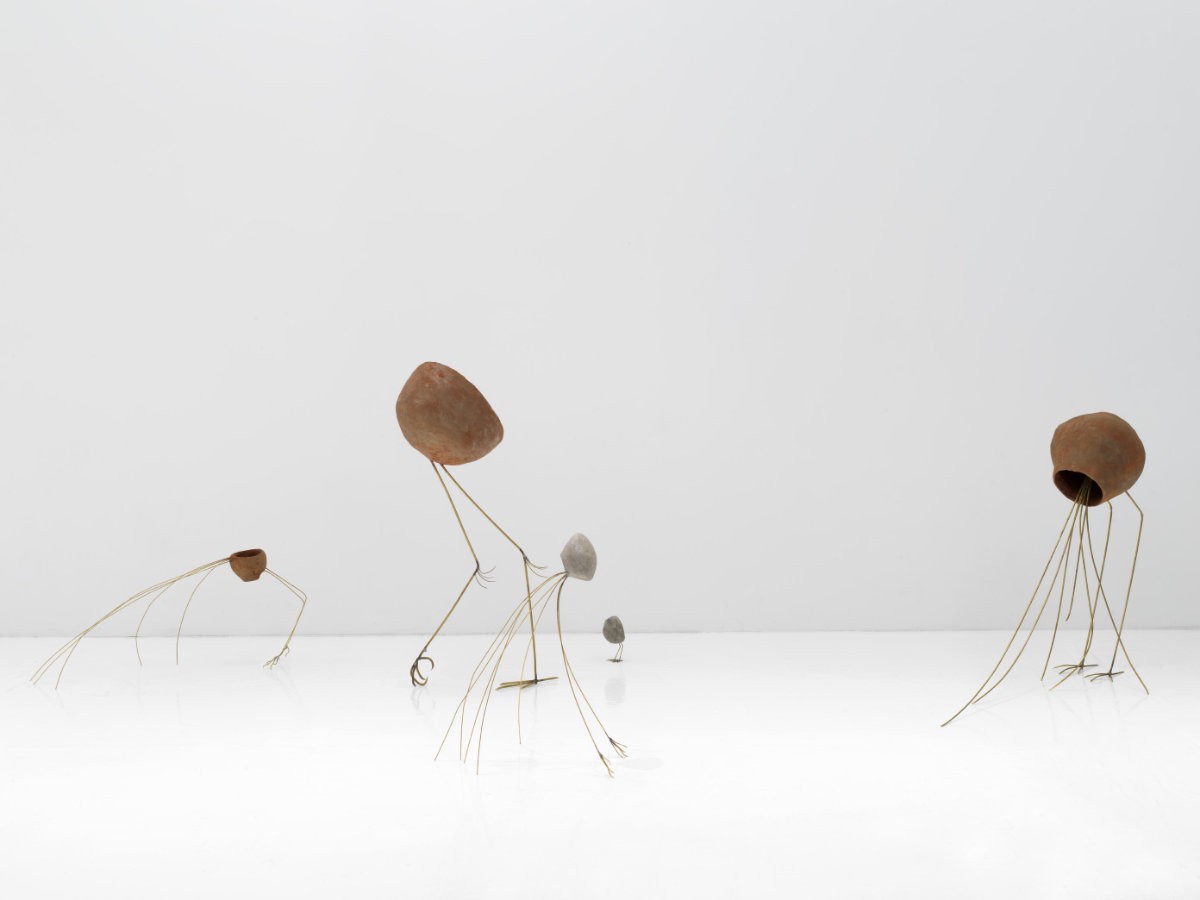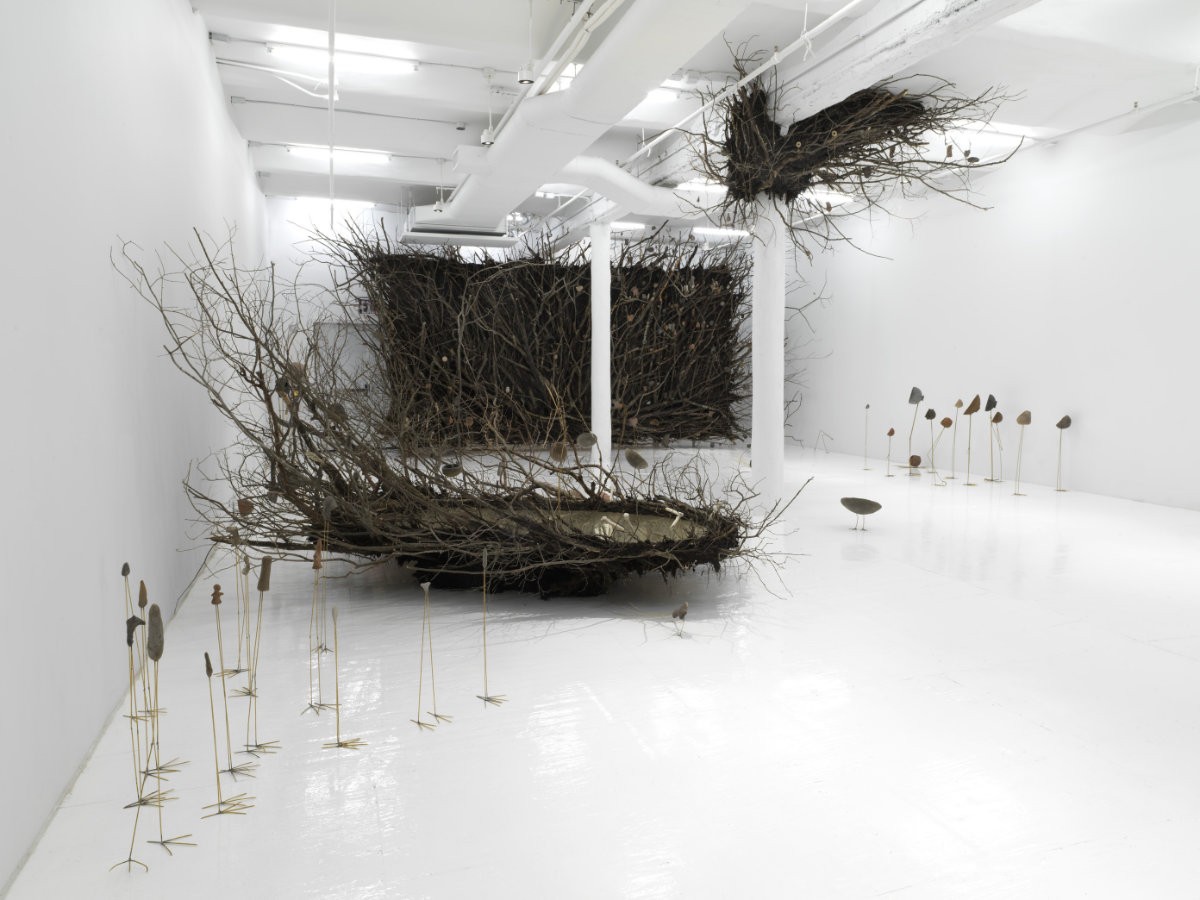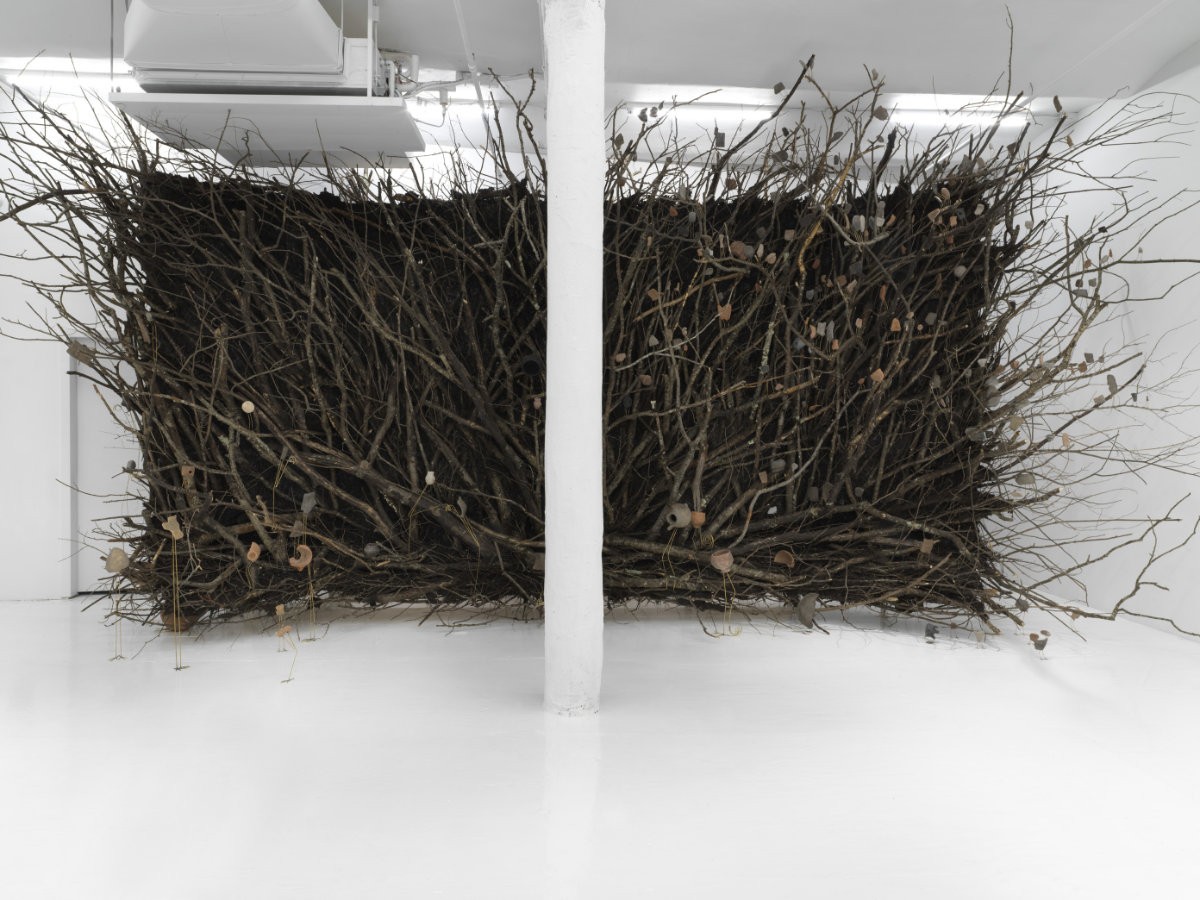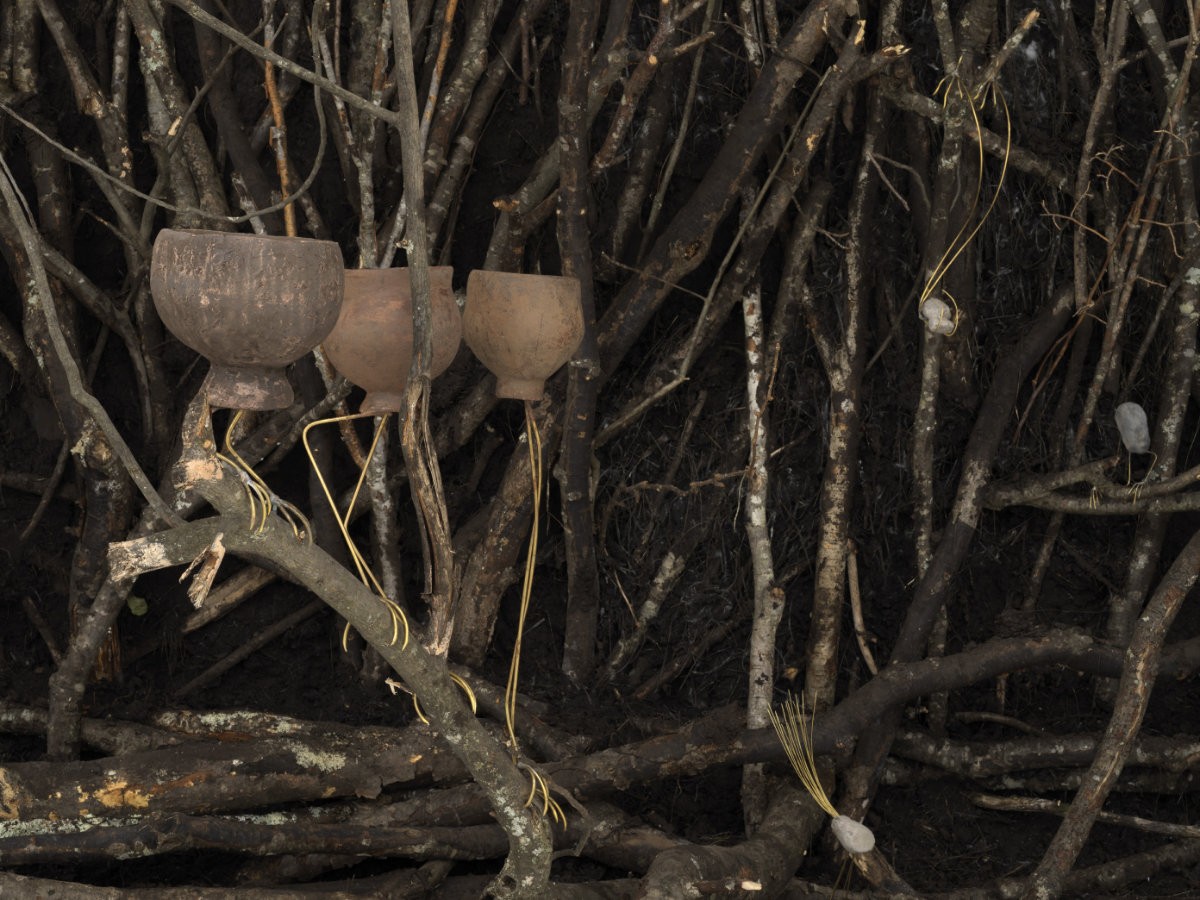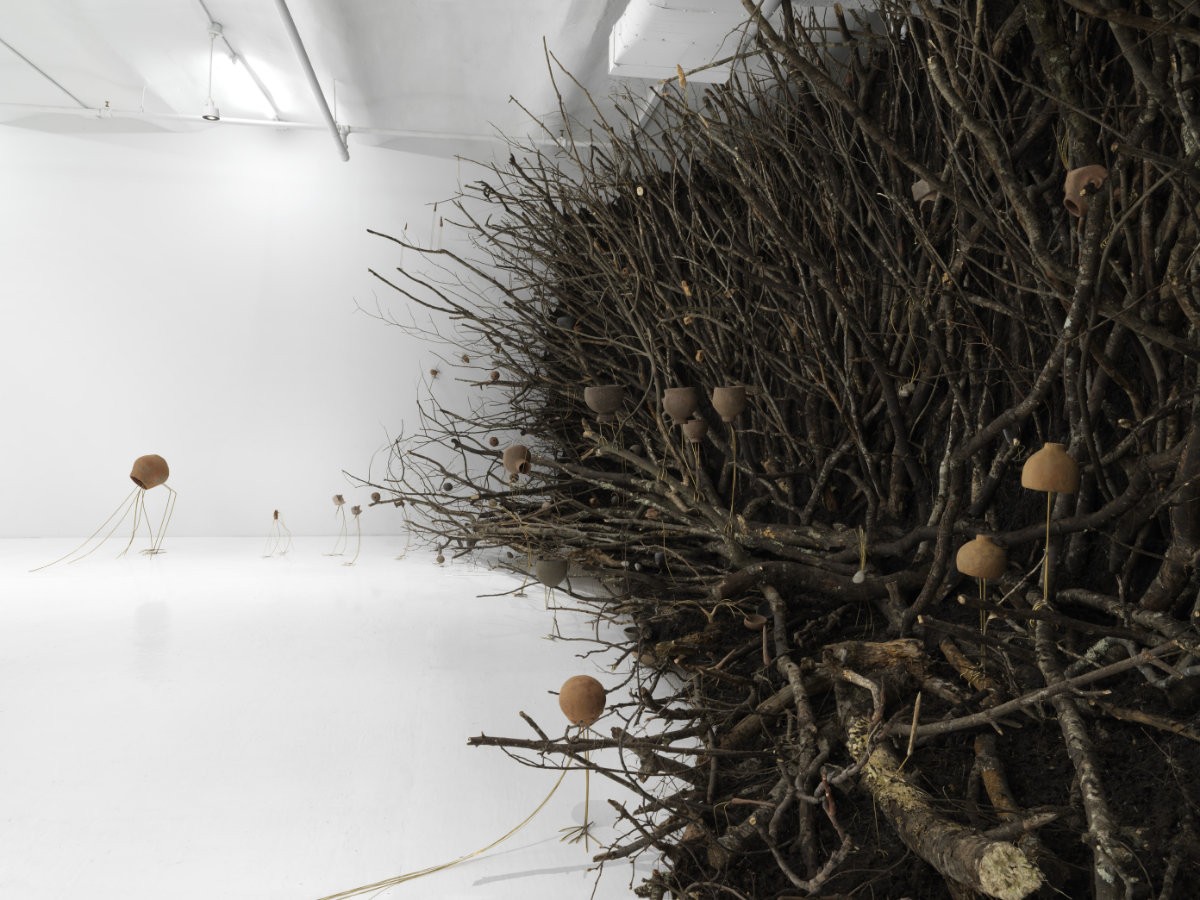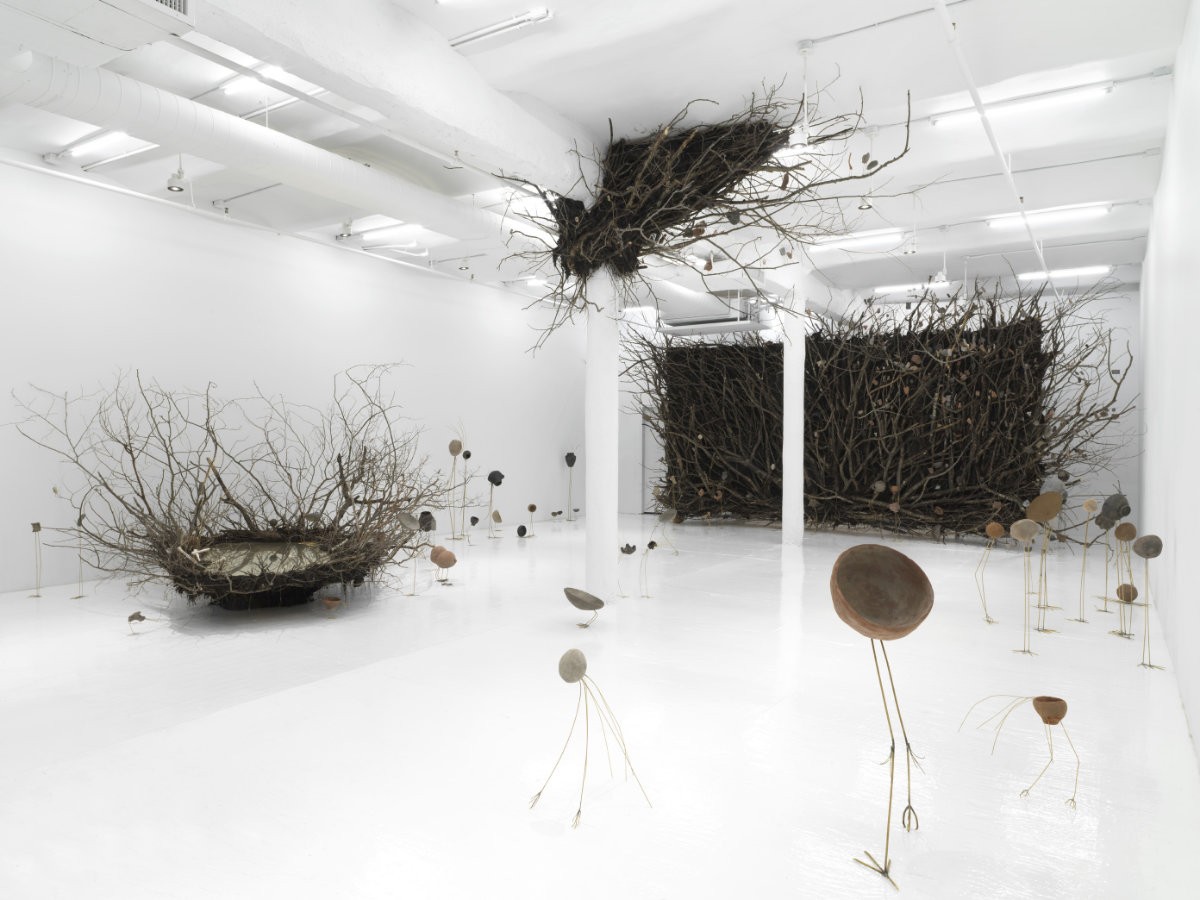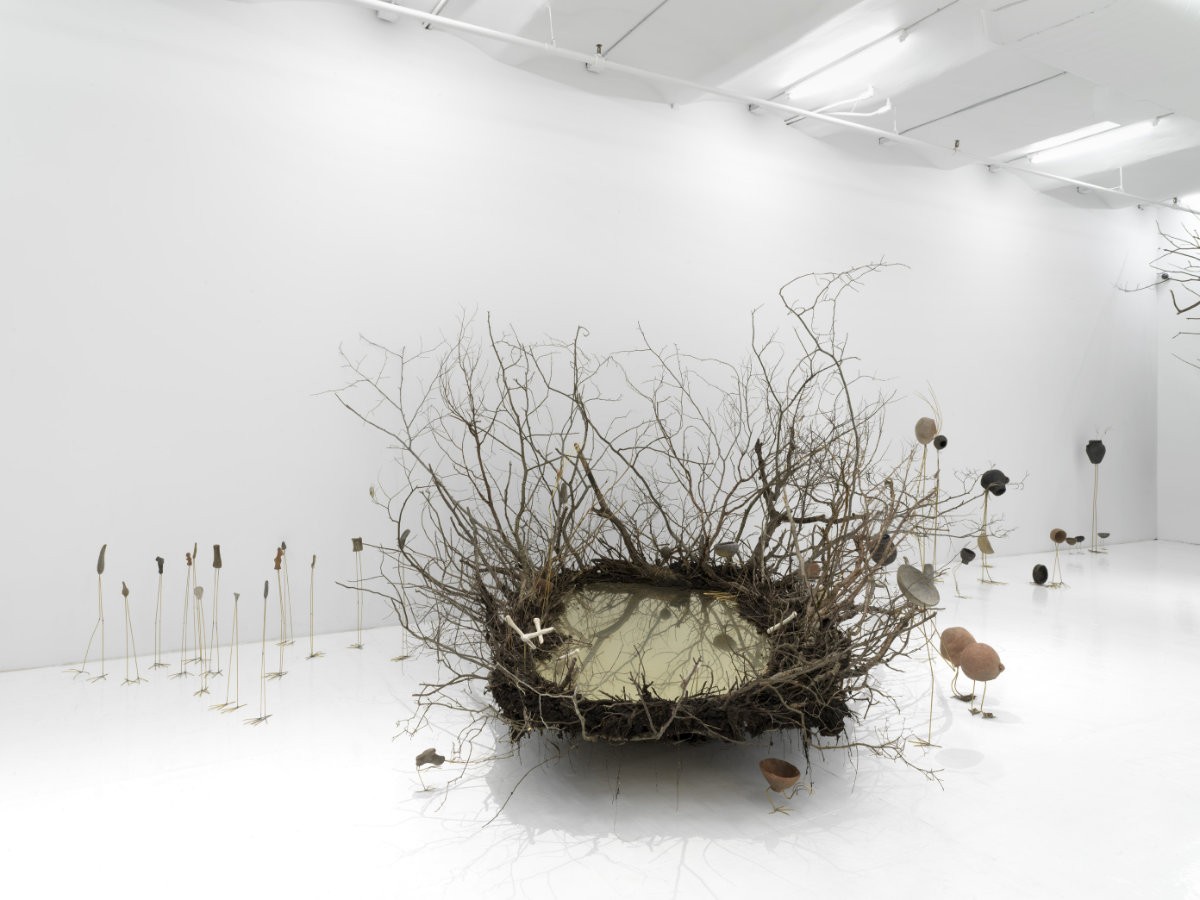Petrit Halilaj
Ru
27 Sep 2017 - 07 Jan 2018
PETRIT HALILAJ
Ru
27 September 2017 - 7 January 2018
In his work, Petrit Halilaj (b. 1986, Kostërrc, Skenderaj-Kosovo) often departs from his own biography and makes use of exhibition processes to alter the course of private and collective histories.
Encompassing sculpture, drawing, text, and video, many of Halilaj’s works incorporate materials from his native Kosovo and manifest as ambitious spatial installations through which the artist translates personal relationships into sculptural forms. His contribution to the 6th Berlin Biennial (2010) featured a life-size supporting structure for his family’s new home; the work comprised both the construction of this home in Pristina as well as its ghost shell on view in Berlin. In another project from 2013, Halilaj uncovered and recreated the deteriorated collection of the natural history museum in Kosovo, which had been discarded after the end of the Kosovo War in the 1990s.
For his New Museum exhibition, Halilaj will present an ambitious new project that begins in Runik, the city in which he was born and the site of one of the earliest Neolithic settlements in the region, where some of Kosovo’s most significant artifacts have been found—among them a small musical instrument known as the Runik Ocarina. The Ocarina, part of a collection of objects held by the Serbian government since the war, represents a heritage inaccessible to citizens of Kosovo. Through his work, Halilaj will trace residents’ recollections of remaining archaeological objects as personal origin stories and, by recreating their annexed collection, will give shape to a material heritage that currently exists only in their imagination.
The exhibition is curated by Helga Christoffersen, Assistant Curator.
Petrit Halilaj was born in Kostërrc, Kosovo, in 1986, and lives and works between Berlin; Mantua, Italy; and Pristina, Kosovo. Recent solo exhibitions include HangarBicocca, Milan (2016); Kölnischer Kunstverein, Cologne (2015); Bundeskunsthalle, Bonn (2015); National Gallery of Kosovo, Pristina (2014); Wiels, Brussels (2014); and Fondation d’Enterprise Galeries Lafayette, Paris (2013). His work has been presented at the 57th Venice Biennale (2017); the Israel Museum, Jerusalem (2016); Museo Marino Marini, Florence (2015); S.A.L.T.S., Switzerland (2015); Punta della Dogana, Venice (2015); Museion, Bolzano (2013); New Museum, New York (2012) and the 6th Berlin Biennale (2010). In 2013, Halilaj represented the Republic of Kosovo in the country’s first national pavilion in the 55th Venice Biennale. He was recently awarded a special mention by the Jury at the 57th Venice Biennale, and is the winner of the Mario Merz Prize 2017.
This exhibition is part of a three-year initiative, launched in collaboration with Kvadrat, to premiere ambitious new productions by emerging artists.
Generous support is provided by J.Y. Song.
Additional support is provided by the Toby Devan Lewis Emerging Artists Exhibitions Fund.
Special thanks to ChertLüdde, Berlin, and kamel mennour, Paris/London.
Thanks to Matteo Brioni.
Ru
27 September 2017 - 7 January 2018
In his work, Petrit Halilaj (b. 1986, Kostërrc, Skenderaj-Kosovo) often departs from his own biography and makes use of exhibition processes to alter the course of private and collective histories.
Encompassing sculpture, drawing, text, and video, many of Halilaj’s works incorporate materials from his native Kosovo and manifest as ambitious spatial installations through which the artist translates personal relationships into sculptural forms. His contribution to the 6th Berlin Biennial (2010) featured a life-size supporting structure for his family’s new home; the work comprised both the construction of this home in Pristina as well as its ghost shell on view in Berlin. In another project from 2013, Halilaj uncovered and recreated the deteriorated collection of the natural history museum in Kosovo, which had been discarded after the end of the Kosovo War in the 1990s.
For his New Museum exhibition, Halilaj will present an ambitious new project that begins in Runik, the city in which he was born and the site of one of the earliest Neolithic settlements in the region, where some of Kosovo’s most significant artifacts have been found—among them a small musical instrument known as the Runik Ocarina. The Ocarina, part of a collection of objects held by the Serbian government since the war, represents a heritage inaccessible to citizens of Kosovo. Through his work, Halilaj will trace residents’ recollections of remaining archaeological objects as personal origin stories and, by recreating their annexed collection, will give shape to a material heritage that currently exists only in their imagination.
The exhibition is curated by Helga Christoffersen, Assistant Curator.
Petrit Halilaj was born in Kostërrc, Kosovo, in 1986, and lives and works between Berlin; Mantua, Italy; and Pristina, Kosovo. Recent solo exhibitions include HangarBicocca, Milan (2016); Kölnischer Kunstverein, Cologne (2015); Bundeskunsthalle, Bonn (2015); National Gallery of Kosovo, Pristina (2014); Wiels, Brussels (2014); and Fondation d’Enterprise Galeries Lafayette, Paris (2013). His work has been presented at the 57th Venice Biennale (2017); the Israel Museum, Jerusalem (2016); Museo Marino Marini, Florence (2015); S.A.L.T.S., Switzerland (2015); Punta della Dogana, Venice (2015); Museion, Bolzano (2013); New Museum, New York (2012) and the 6th Berlin Biennale (2010). In 2013, Halilaj represented the Republic of Kosovo in the country’s first national pavilion in the 55th Venice Biennale. He was recently awarded a special mention by the Jury at the 57th Venice Biennale, and is the winner of the Mario Merz Prize 2017.
This exhibition is part of a three-year initiative, launched in collaboration with Kvadrat, to premiere ambitious new productions by emerging artists.
Generous support is provided by J.Y. Song.
Additional support is provided by the Toby Devan Lewis Emerging Artists Exhibitions Fund.
Special thanks to ChertLüdde, Berlin, and kamel mennour, Paris/London.
Thanks to Matteo Brioni.

